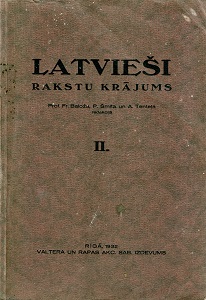
We kindly inform you that, as long as the subject affiliation of our 300.000+ articles is in progress, you might get unsufficient or no results on your third level or second level search. In this case, please broaden your search criteria.

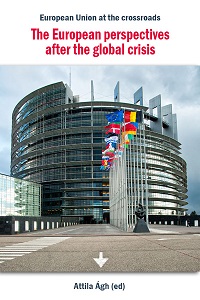
As its opponent military alliance, the Warsaw Treaty Organization, vanished with the end of the Cold War, NATO fell into a position where its raison d’être became qustionable. NATO has been corresponding to this identity crisis with both consistency and change. The first step was to keep the unified Germany within the purview of NATO. The next one was to expand NATO to the East. The participation of the former Soviet bloc communist countries as new members of NATO went through three stages. These moves represent the aspect of NATO as an alliance. However, in the Kosovo War in 1999, NATO intervened advocating the principle of collective security, which follows the Kantian tradition in international politics and is quite different from the logic of alliance. The 9/11 terror became the occasion to newly give meaning to Article 5 of the NATO Treaty, and the “war on terror” manifested again NATO’s character as an alliance. Bush Administration’s Missile Defense policy also aimed at strengthening the alliance. From the Russian standpoint, the Bush Administration started a neo-Cold War. NATO is taking charge of the role of collective security once again in the Libyan War. This war has some similar points with the Kosovo War, just except the fact that the latter was not mandated by the UN Security Council. Like this, NATO has been showing its double character since the end of the Cold War. If NATO’s eastward expansion and anti-terrorism activities represent one aspect of its function, namely the function of alliance, the Kosovo War and the Libyan War represent another aspect of NATO’s function, namely the function of collective security.
More...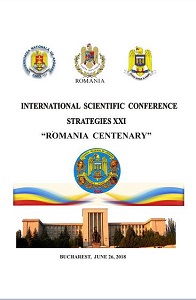
The present paper aims at examining the interdependent relations between military power and globalization. It`s an approach much needed by the researchers in the security field as globalization has become a key factor nowadays. The paper identifies certain indicators that facilitate the drawing of the organizational spatial and temporal coordinates of the military globalization, such as: degree of imperial expansion; foreign military presence; military diplomatic representation; army industry; weapon-related expenses; defence expense; belonging to alliances; military cooperation treaties; connections to the defence industry; incidence of military interventions; military assistance patterns. Last but not least, the paper describes the three faces of military globalization, namely: 1) the global expansion of warfare; 2) the global dynamics of weapons and 3) the expansion of geogovernance.
More...
The United Nations has a mandate from Member States to authorize collective measures to prevent and remove threats to international peace. To understand the general framework of democratic control of the armed forces, it is important to consider the international dimension of the use of force, together with the problems and deficits inherent in the design of control mechanisms. National participation in international peace missions has become an important issue foreign and defence policy, which is of direct interest to parliaments of armed forces contributing states. At international level, the control of the armed forces can be carried out by international organizations to which States are parties and / or international tribunals.
More...
Military courts are crucial for a country. In this year, a year so important for the history of Romania, the national security has some new challenges. The new events claim to enhance the rule of law in all aspects. Military courts are an important pillar of national security because the importance of legal aspects. National security should be ruled by law, and military courts can guarantee this rule of law.
More...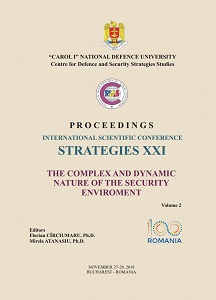
Tactical logistic support should be configured as a functional system which has to be able to achieve its goal in a simple, continuous and sufficient way. Among the tactical logistical support structures, logistic execution unit/infantry division was designed as a complex structure. Logistic execution unit acts in an infantry division, it is constituted and is operationalized from a logistics base, but the logistics base is a new concept. They function only for fifteen years and did not have a strong tradition. From that point of view, we consider necessary to define, think and research about all the processes that involve the logistics base and its mobile structure: logistic execution unit.
More...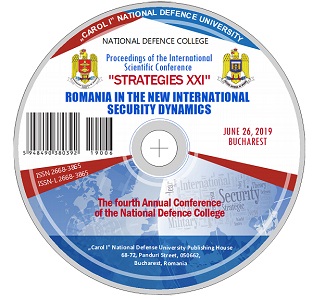
The NATO Security Investment Programme represents one of three North Atlantic Treaty Organization resource pillars, beside manpower and budgets. NSIP covers major construction and command and control system investments, which are beyond the national defence requirements of individual member countries. In implementation of NSIP, both NATO in general and Romania in particular are facing increased challenges generated by the security environment which require short timeline in implementation, effectiveness in capability delivery and a new governance and management model synchronized with adaptation of legislation and internal organization
More...
In order to understand the importance of revising the national legislation in response to this new type of threat - called in a generic way hybrid warfare, we need to understand what this new form of aggression means and its various forms of manifestation. According to analysts this type of war combines conventional methods with guerrilla type aggressions, cyber-attacks, informational warfare techniques and propaganda, which violate international law and aim to achieve specific political goals.
More...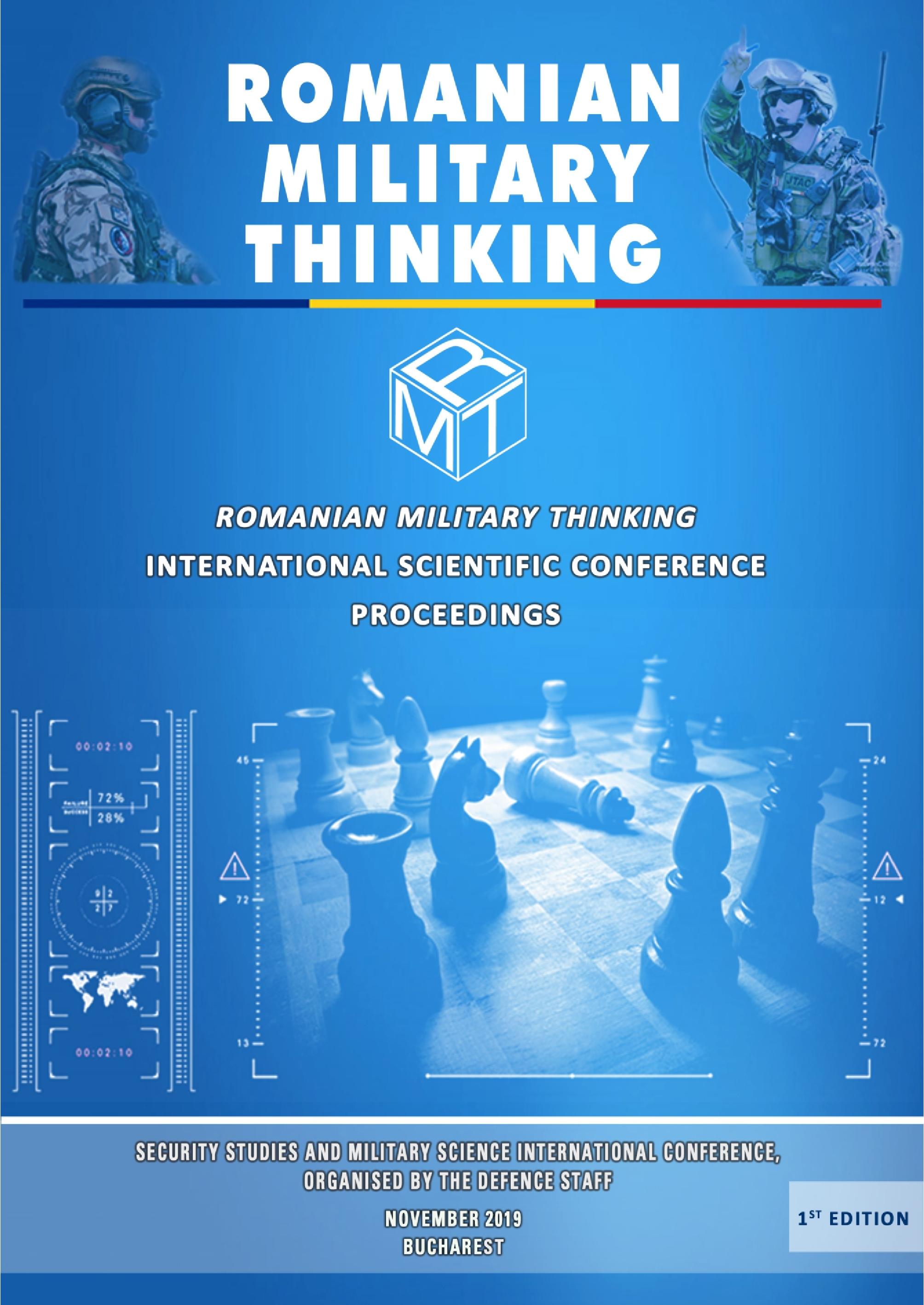
Be it seen as a modern society need or just as a nowadays old dusty idea, leadership canactually make the difference in a military organization between “straight ahead” and “fastforward”.According to John C. Maxwell there are 5 levels of leadership: 1. Position leadership – peoplefollow because they have to; 2. Permission leadership – people follow because they want to;3. Production leadership – people follow because of what you have done for the organization;4. People development leadership – people follow because of what you have done for thempersonally; 5. Pinnacle – people follow because of who you are and what you represent.This article aims to emphasize the military organization need for leaders, especially for level4 leaders. As the technological evolution travels around the world with speed light, so shouldthe human resource development through leadership do.Level 4 leaders have the ability to empower others. They use their position, relationshipsand productivity to invest in their followers and develop them, until those followers becomeleaders in their own right. The result turns out to be reproduction. Level 4 leaders have theability to reproduce themselves.Seen from an economical/profitable point of view, leadership fills the space betweenstandard performance and continuing efficiency. How can we multiply leadership in less time sowe can have it all over our military organization and keep up with technological developmentspeed? The answer is simple again. Forming and using from abundance level 4 leaders in orderto develop other leaders. They are the ones that can exponentially multiply and speed up ourhuman resource development in a realistic pursuit of great performance.
More...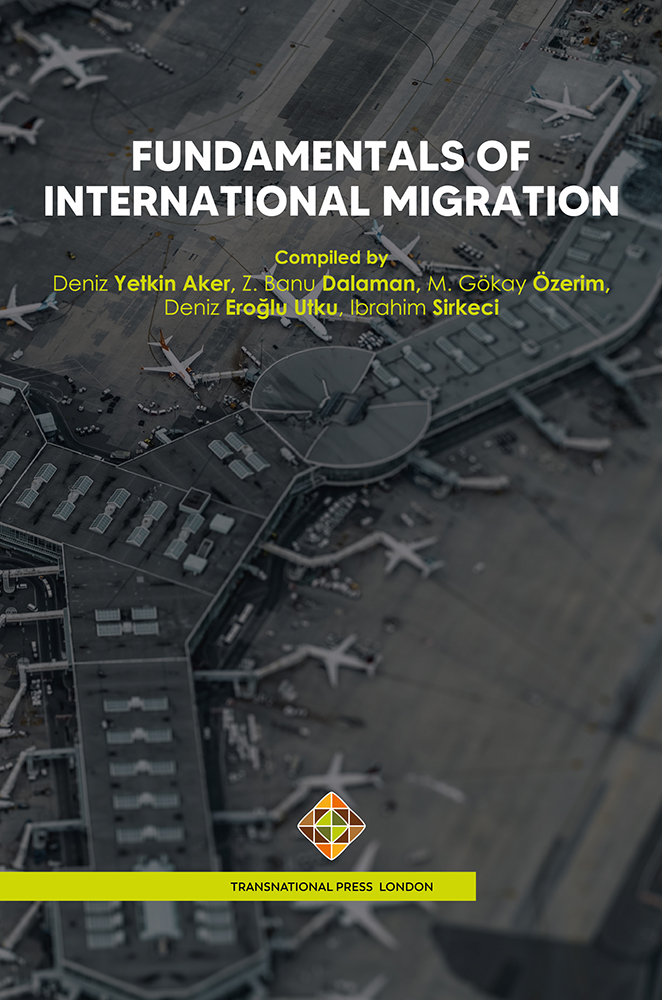
On 18 November 2016, NATO’s Secretary General, Jens Stoltenberg said“ some Turkish officers working in NATO command structure… have requested asylum in the countries where they are working” months after the failed coup attempt in Turkey and the purges that followed. This is simply adding fuel to the fire in Europe. The European Union (EU) has faced one of its biggest crises with the rise of population flows through its Eastern and Southern neighbours as well as movements within the EU. In 2016, the Brexit referendum and debates surrounding it in the UK were largely focused on restricting EU immigration to the UK whereas eastern and central European members were raising concerns about and reluctant to comply with the refugee quota proposals and the burden sharing they often included.
More...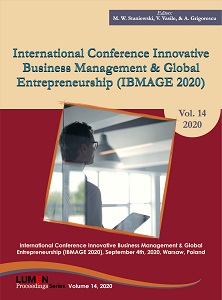
The year 2020 began with the coronavirus pandemic, which led to one of the most tumultuous periods in recent history, sending the world economy into a crisis that is hard to estimate, with a steep drop in economic growth and a recession with grim prospects of a return to its original situation. We are talking about major social, economic and political challenges, with implications that will be very difficult to manage in terms of social life, health care, unemployment or economic development. The current context of the global crisis due to the coronavirus pandemic, the implicit transformations that have occurred in the management of public administration has required a change in the classical attitude towards crisis management and management, namely the adoption of a more complex and comprehensive one, which will give you a firm concern for the affected areas, by resorting, where necessary, to a military management to solve the crisis. Military leadership is a strong one, with special training, that makes it able to manage crisis situations, because we are talking about people who are used to making decisions in conditions of uncertainty and having insufficient information.The document presented is a study that examines the role played by the military environment in the context of the coronavirus pandemic, given that it has generated a complex chain of socio-economic effects, and the need to involve military capabilities is more than necessary, considering one of the mission of army is supporting the authorities during unexpected situations.
More...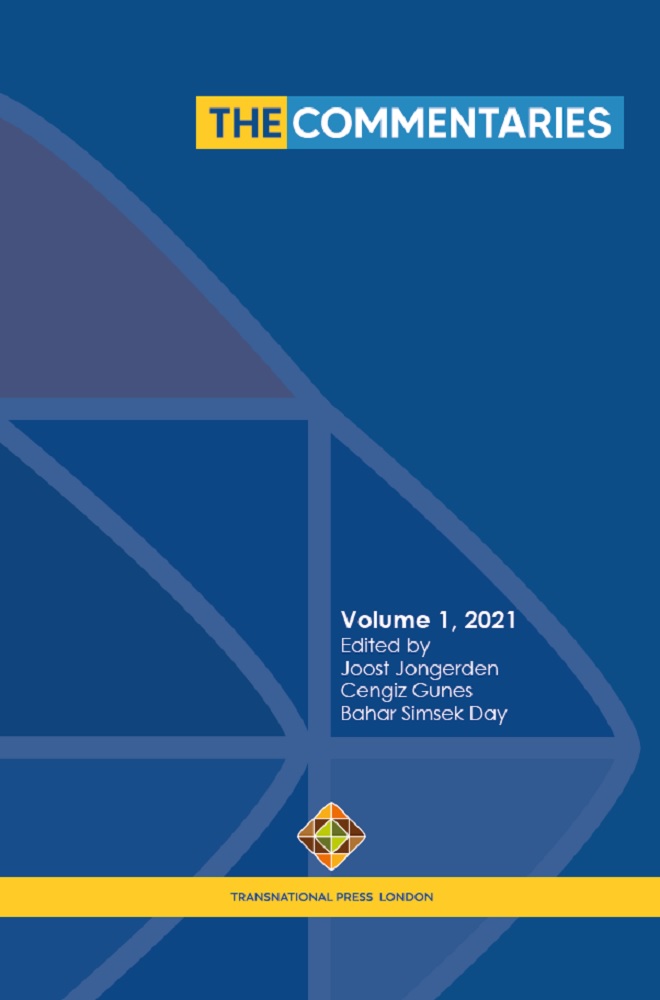
The future of the Kurds in Iraq and Syria after a US withdrawal has already begun to take shape. The containment of Kurdish political and military cross-border mobility has been achieved to some extent by paving the way for Turkey’s military operations; it is now contingent on the recomposition of a desired ‘favorable balance of power” to fill the power vacuum in the Middle East. With an aggressive Turkish stance in the region, however, neither this containment policy nor the efforts made toward the maintenance of the “favorable balance of power” can be successful.
More...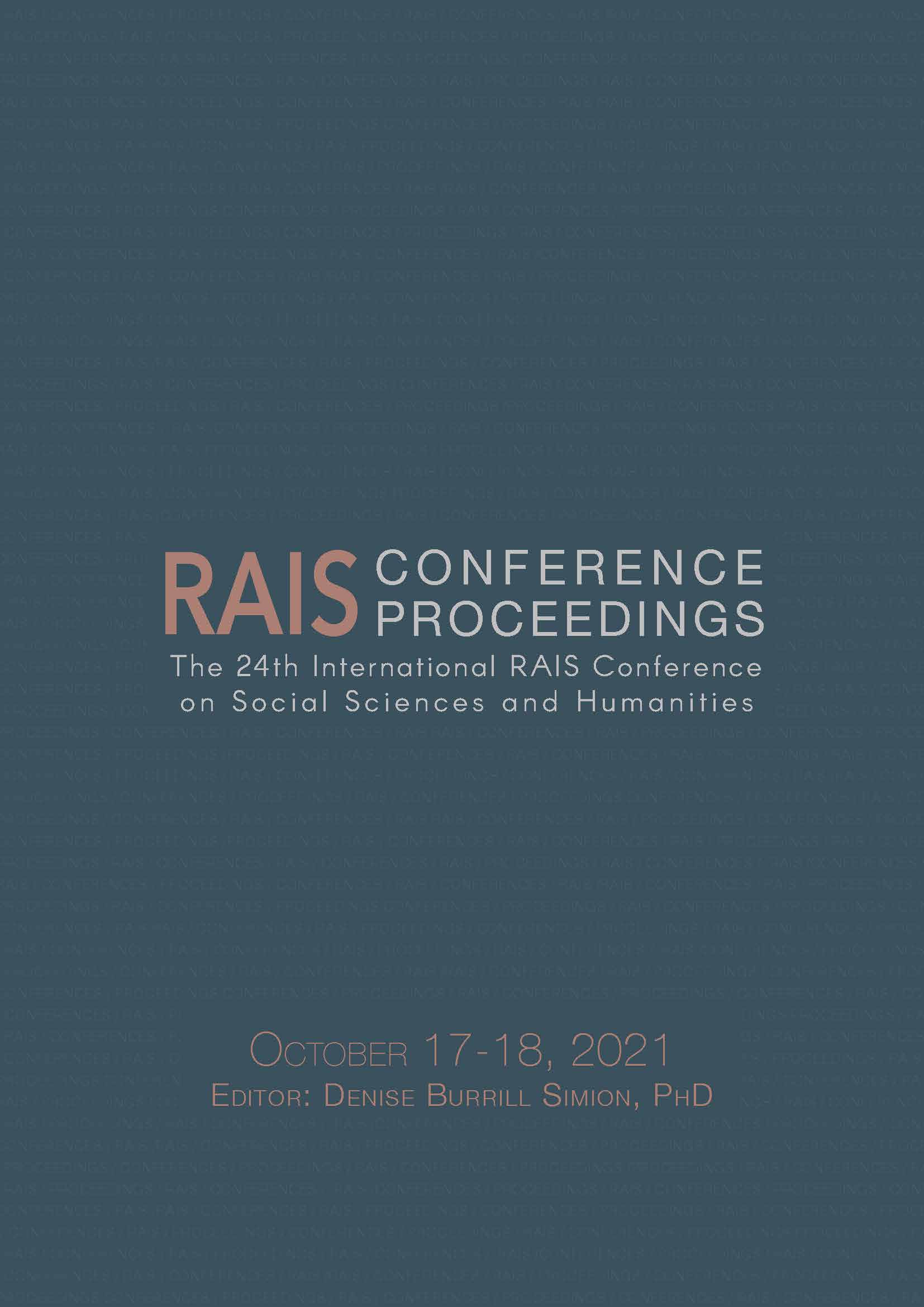
The role of the Nigerian military in ensuring smooth operation and exportation of crude oil cannot be overemphasized. This is owing to the fact that the chunk of Nigeria’s foreign exchange earnings comes from crude oil exportation. Boris (2015) confirms that oil is arguably the livelihood of the modern economy and it has now become the most essential commodity in the world. It is a statement of the fact that oil revenue is the major source at which governments at all levels in Nigeria finance their budgets. This is why the Nigerian military would leave no stone unturned in protecting the nation’s source of living. However, while some scholars believe military expenditure plays a positive role in the economies of developing countries, others view the role as detrimental. One of the reasons why the analysis of military expenditure has not led to a conclusive result might be due to the non-identification of the correct channel. Investigating the role of the military sector on economic growth via the Nigeria oil sector may therefore be a good channel of analysis. Therefore, this paper tries to mainly investigate the joint nexus between military expenditure and oil revenue, and economic growth in Nigeria. To achieve this, time series data were gathered and analyzed using OLS technique with the aid of EVIEWS 10 package. The model used included a joint-interactive term. The result of the analysis reveals that military expenditure is individually statistically and significantly positive with economic growth. Though, as a joint interactive term with oil revenue, it is negatively statistically insignificant but this might be due to the oil revenue being individually statistically insignificant. The study, therefore, recommended military expenditure as one of the factors the Nigerian government should employ in influencing her economic growth.
More...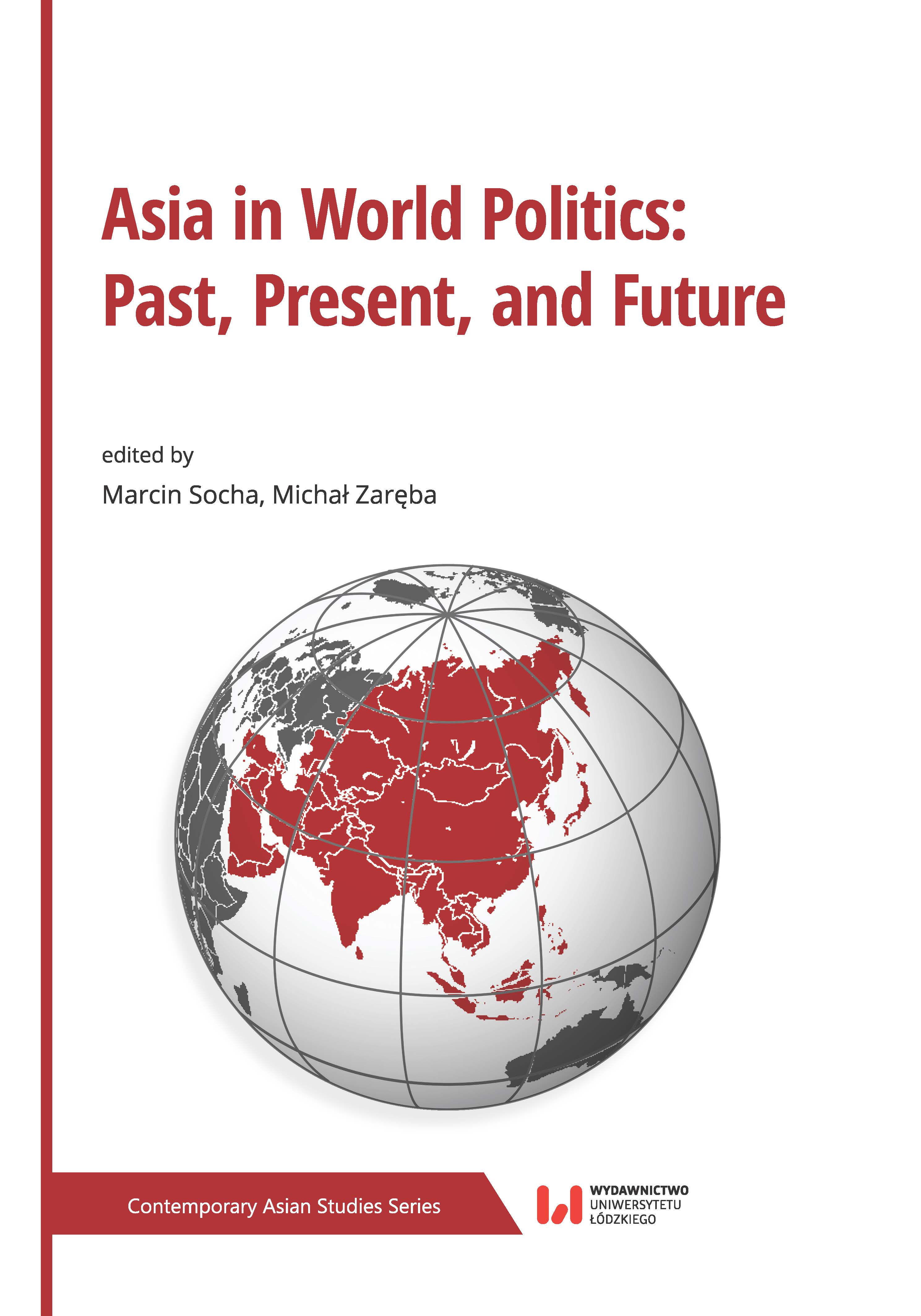
This study applies four alleged “sins” of American foreign policy – ignorance, lack of empathy, quick resort to military action, and arrogance – to America’s failed policy regarding the North Korean nuclear program. While that failure cannot be attributed directly to the sins, there is evidence that an approach not characterized by them might lead to better results.
More...
The Article examines the North Korean missile crisis situation. It starts with providing a background of North Korean nuclear program and identifying primary drivers of North Korea’s continued interest in weapons of mass destruction. The article analyses hypothetical solutions like military action and the ineffectiveness of the economic sanctions. The three solutions to North Korean case start with a plan to prepare a policy of regime transition, and are followed with an explanation why making Pyongyang feel more secure and helping to improve its country economy are crucial to achieving American goal, which is at least freezing its country nuclear weapons program.
More...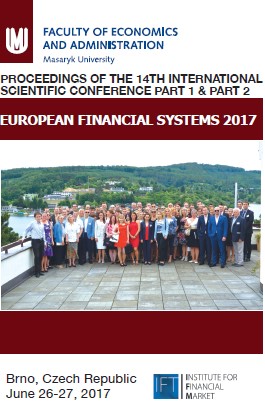
The article „Possibility of Accrual Accounting Application in case of Active Reserve Forces of the Czech Army” analyses the application of the accrual accounting by way of Active Reserve Forces example. Accrual accounting is considered as a potential tool of resource management system effectiveness increase in the Czech Army. The Active Reserve Force is monitored as a cost centre that is managed by actual and predetermined costs. The three training situation are simulated. The analysis takes into account only activities directly connected with training of the Active Reserve unit influenced by training type and military vehicles involvement. The data are displayed by synthetic and analytical accounts. The training price of separate Active Reserve soldiers is generated through the synthetic and subsidiary accounts under accrual accounting system. Each Active Reserve serviceman have assigned own analytical cost account. This account have displayed all cost items associated with his training. The closing balance of all analytical accounts provides the sum of total costs that were connected with Active Reserve member training.
More...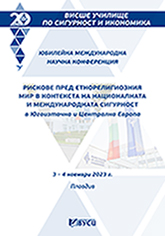
The text examines the nature of the war in Ukraine, the possible scenarios for its development and the risks Bulgaria faces. The key question of the study is: could the military conflict between Russia and Ukraine develop into a nuclear war? And who needs it?! The answer is given by the dynamics of the economic rivalry between the two main centers of capital: the Rothschild clan and the Rockefeller clan. It is pointed out that our country has been declared „frontline“ and as such has been turned into a hostage of the American and British Anglo-Saxon and Jewish elites.
More...
The article offers a reflection on the political conditioning of war. Its starting point is the state's primary concern – security. Meaningfully, it is materialized in the state interest, in the raison d’Etat. The fundamental basis of the state interest is in the protection of the subjectivity of the state itself. Inasmuch as the raison d'Etat is ultimately oriented fundamentally towards security in order to hold the community together and hence has a direct bearing on whether the state defends itself by military means or by other means relevant to the specific situation, the question of realization on its part is reached of its geopolitical imperative by applying Kremer's principles.
More...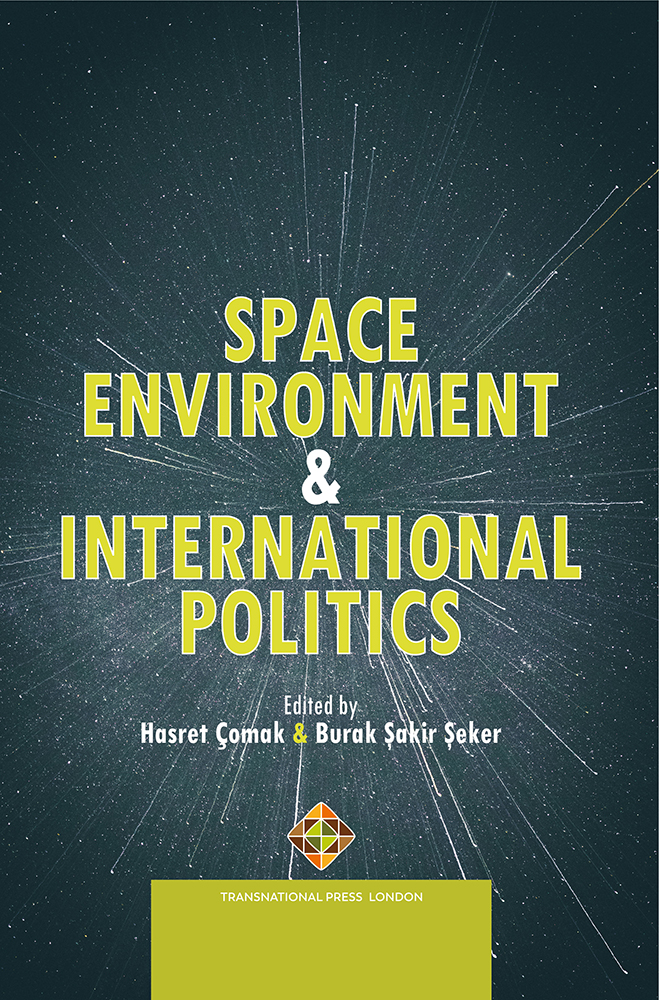
With the launch of the first satellite Sputnik in 1957, the military significance of space was promptly realized, paving the way for the continuous development of the necessary technologies to the present level, where space provides superiority in the military arena unmatched by traditional means. The capabilities offered by space are not just small incremental advantages, but have a multiplying effect on the other forces enabling them to attain the highest levels of capability required by modern warfare. Possession of space technologies has become vitally important for many countries.
More...